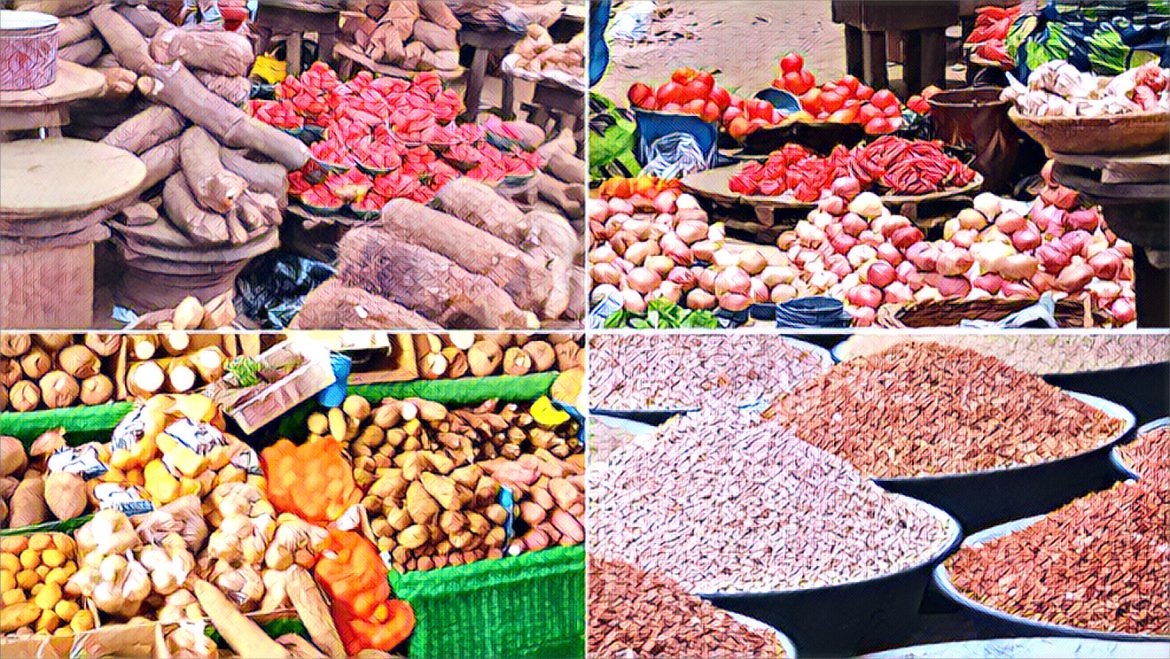As Muslims across Nigeria mark the end of Ramadan with the Sallah celebrations, many are doing so amid economic challenges, including soaring food prices and general hardship. Despite these difficulties, the spirit of the festival remains strong, with families coming together to observe the joyous occasion.
The Eid al-Fitr celebrations, which signify the conclusion of a month of fasting, have traditionally been a time for feasting, giving, and communal harmony. However, this year’s festivities are tempered by the economic strain that has affected millions of Nigerians. From Lagos to Maiduguri, many households are feeling the pinch of high inflation, which has significantly driven up the cost of essential goods.
In Lagos, the commercial capital, the usual hustle and bustle of Sallah preparations are evident. Markets are filled with the scent of grilled meat, a staple of the Sallah feast, while colorful fabrics and decorations are prominently displayed. Despite the economic challenges, families are doing their best to maintain the festive spirit, making do with what they have. “We have to make the best of it. This is a time for joy and family,” said Aisha Mohammed, a resident of Surulere, Lagos.
Across the nation, the situation is similar. In Kano, the market buzzes with activity, but many vendors and shoppers note that the high cost of food items, especially staples like rice, beans, and meat, has put a damper on celebrations. “Prices have gone up so much that we are struggling to afford the basic ingredients for our meals,” said Idris Bello, a trader in the Kofar Wambai market. Despite these challenges, the community remains resilient, with many finding creative ways to enjoy the festivities.
In the north, particularly in Sokoto and Katsina, the economic strain is also palpable. Many families are cutting back on traditional foods and decorations to accommodate their budgets. “We are making smaller portions this year, but we are still celebrating,” said Fatima Ahmed, a resident of Katsina. The sentiment of perseverance and hope is prevalent, with many using the holiday as an opportunity to pray for better times ahead.
The rising cost of living has been driven by a combination of factors, including inflation, exchange rate fluctuations, and supply chain disruptions. The Central Bank of Nigeria’s recent monetary policies have also had an impact, further straining household budgets. Analysts warn that unless significant economic reforms are implemented, the situation could worsen, affecting not only Sallah celebrations but everyday life for many Nigerians.
In response to the economic hardships, various organizations and individuals have stepped in to support the less fortunate. Charitable groups and community leaders are distributing food and other essential items to those in need, ensuring that the spirit of Sallah – charity and solidarity – is upheld. “We cannot allow the difficulties to overshadow the essence of this festival. We must help one another,” said Abdulrahman Musa, a local leader in Abuja.
Amid the economic turmoil, there is a strong sense of resilience and unity. Nigerians are finding ways to support each other, whether through communal prayers, sharing meals, or providing assistance to those less fortunate. Social media is abuzz with messages of hope, prayers for peace, and calls for solidarity, reinforcing the communal bonds that define the Sallah celebration.
In conclusion, while the economic hardships have made this year’s Sallah celebrations more challenging, the spirit of togetherness and resilience remains unbroken. Nigerians are celebrating with a resolve to overcome adversity, praying for better days ahead and cherishing the moments of joy and unity that define this important festival.
Source of this article: tribuneonlineng.com


